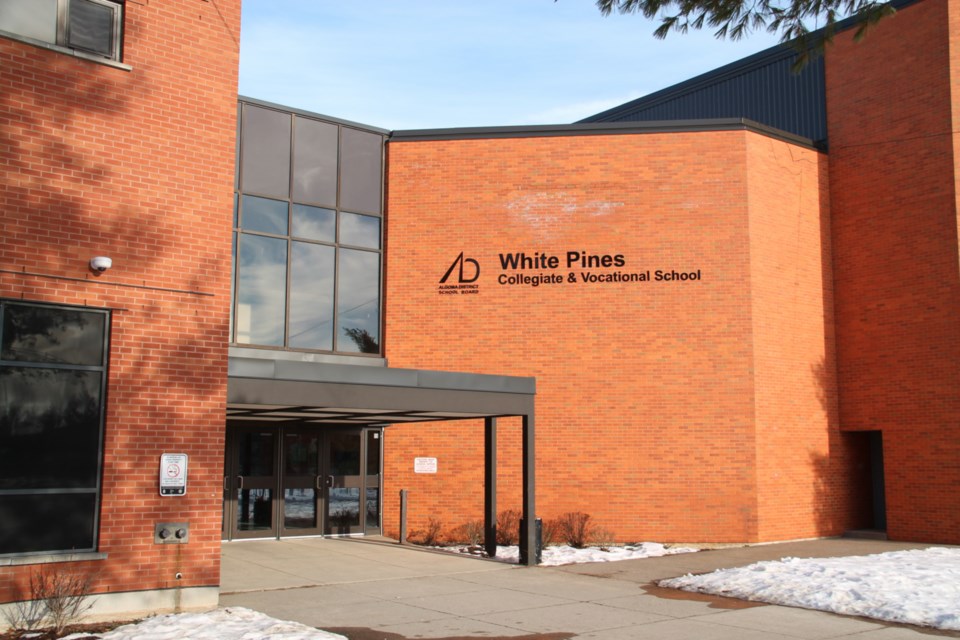“We didn’t expect it to be an easy climb. It’s a big hill with so many moving parts to it but we’re really happy with the plan we’ve pulled together as an emergency remote learning system.”
That from Lucia Reece, Algoma District School Board (ADSB) director of education, speaking to SooToday, as online instruction for the board’s students (and those at the elementary and secondary levels in all school boards across Ontario) continues due to COVID-19 fears, with all schools shut down while the virus continues its rampage.
The provincial government recently ruled publicly funded schools across Ontario will remain closed to students until May 4 due to COVID-19, but that closure has now been extended past May 4, the government stating more information will be made available in the coming days.
Reece said the board is getting electronic devices such as laptops and WinBook tablets (different devices for different grade levels) to students who don’t have access to a computer or the internet at home, and delivering hard copy lessons to students in the board’s more remote areas.
“Some of our support staff (such as clerical workers, educational assistants and many others), in some areas where we didn’t have the same ability to support students in online learning, are delivering lessons by school bus (assisted by bus drivers from Algoma and Huron-Superior Transportation Services). We’ve had a great response from people delivering devices and packages.”
Lessons are packed into envelopes and distributed to family mailboxes, respecting social distancing measures, the board working to ensure lessons are dropped off consistently on certain days.
School work can be discussed by students with their teachers over the phone or through online technology which has been supplied by the board (the lessons not having to be mailed back), Reece said.
Reece said the board has also been working with Algoma Family Services (AFS) in delivering food boxes to families in need at this time.
Reece said “we have a healthy supply of computer technology (easily available from ADSB schools, all of them on shutdown)...at last count we had over 800 devices we put out there for some families in some of our remote locations.”
“What we did though is make the decision to prioritize the technology for Grade 11 and Grade 12 students, Grade 12 students wanting to graduate.”
“Then there were students with special learning needs, they got their laptops, then students in Grades 4 to 8 who needed a device at home. We’re not distributing technology to Kindergarten to Grade 3. We heard from parents overwhelmingly that they didn’t want their children sitting at home in front of devices, which we totally understand. So much of the learning is not reliant on technology in the younger years. There are lots of ways to reinforce concepts and math skills without a computer, so we focused our energies on Grades 4 to 12.”
Reece said “there’s been a lot of mobilization” to help the ADSB’s 10,000 students across a large geographical area.
Reece said the ADSB is following minimum expectation guidelines for various grades as outlined by the Ministry of Education, which include:
- Kindergarten to Grade 3: Five hours of work per student per week, with a focus on literacy and math
- Grades 4 to 6: Five hours of work per week, with a focus on literacy, math, science, and social studies
- Grades 7 and 8: 10 hours of work per week, with a focus on math, literacy, science and social studies
- Grades 9 to 12: Three hours of work per course per week for semestered students, and 1.5 hours of work per course per week for non-semestered students, with a focus on credit accumulation and graduation.
Teachers are there if students get stuck on assignments, in areas such as math for example, Reece said.
Instruction is available during regular school day hours.
“We can’t expect our staff to be going into evening hours, and parents want time with their families as well, so as much as possible we’re respecting the school day hours,” Reece said.
Because this is an extraordinary set of circumstances for students in which to learn, Reece said the board is delivering education in only “essential learning” concepts.
“This is not learning as usual...we’ve heard from some families there are lots of stresses at home, some students have parents working from home, multiple children at home, who might need to access online devices so we’re really trying to reassure parents, with the ministry timelines that are out there, that they’ve marked a date in the sand around March 13, looking at where kids were at that point in time.”
March 13 was the last regular school day before March Break, with all publicly funded elementary and secondary schools subsequently shut down by the government, making plans for online learning.
“Since then we’ve been really focusing on reinforcing concepts at each grade level, our staff touching base, and if they’re concerned about a student’s progress as of March 13...we’re really being mindful of everyone’s well being, really trying to provide teacher connection with students and reassure them. We’re really using that March 13 date to determine where students were at that point and if there were any struggles in learning (and address them)."
“These are all moving parts that have been happening at the same time, it’s complicated but we’re happy. We’ve had a great response from parents.”
As far as morale goes among ADSB employees, Reece said “we’ve got an amazing staff. Our staff, our union groups, have shown a great spirit of collaboration and asking what they can do to help.”
Reece said the board will look into “every extraordinary measure we can to see our way forward” when asked about Grade 12 students who may see their hopes of enjoying a June graduation ceremony dashed due to COVID-19, suggesting the ADSB may hold graduation ceremonies in the fall like some southern Ontario boards.



